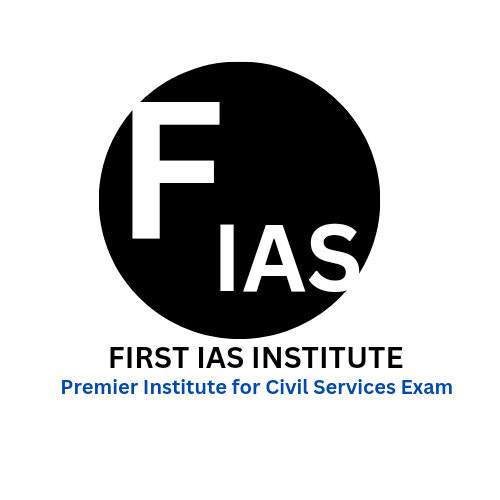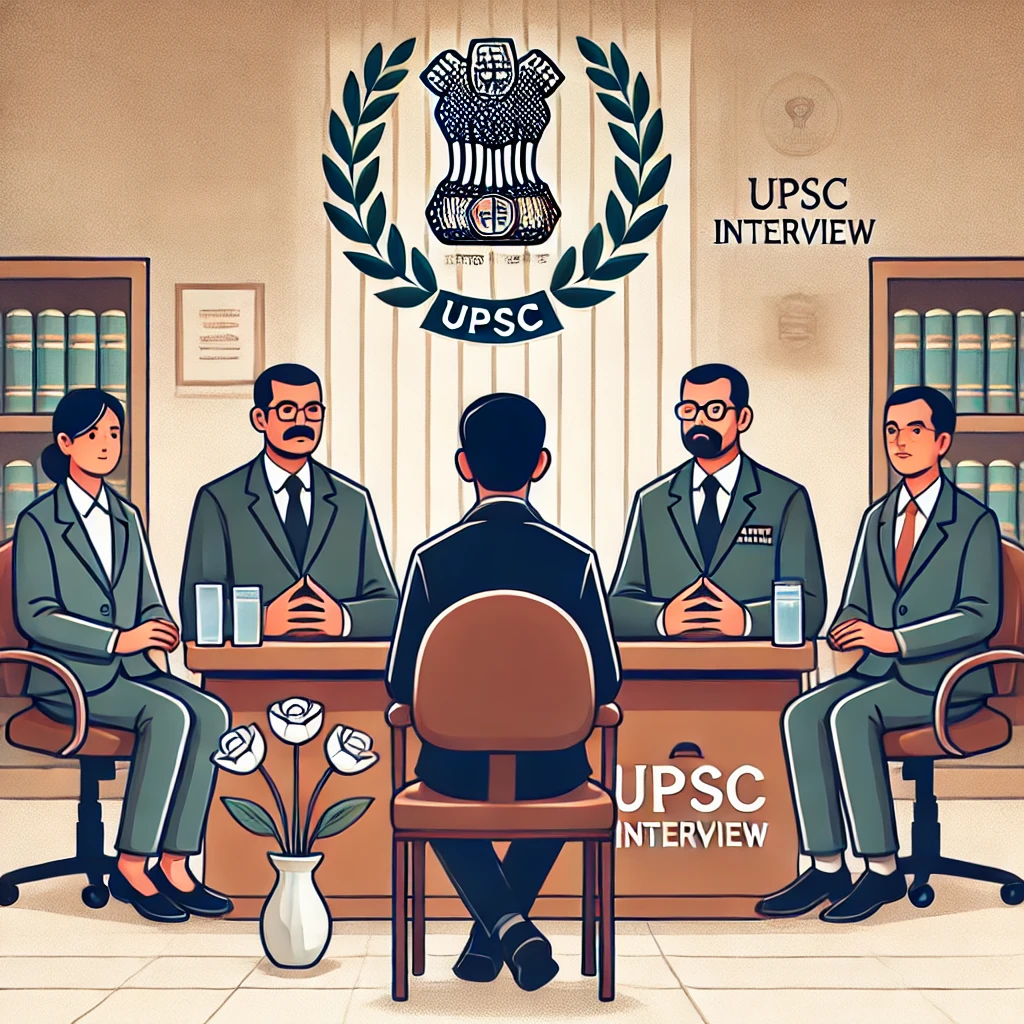How to Prepare for UPSC Interview (Personality Test)
The UPSC Civil Services Examination (CSE) is one of the most challenging and prestigious exams in India. After clearing the Prelims and Mains, candidates face the final and perhaps the most crucial stage: the Personality Test (Interview Round). The interview assesses a candidate's personality, presence of mind, clarity of thought, decision-making skills, and general awareness rather than just knowledge.
If you are preparing for the UPSC interview, this guide will help you with effective strategies, tips, and important aspects to ensure you present yourself as the best candidate before the board.
Join WhatsApp community for Free Notifications, Updates, Study Material, Mock Tests, Internship Updates, and Current Affairs - CLICK HERE TO JOIN
Understanding the UPSC Interview Process
The UPSC interview carries 275 marks and can make a significant difference in your final rank. The board consists of experienced and highly knowledgeable panel members who evaluate you based on:
- Confidence and Communication Skills
- General Awareness and Analytical Thinking
- Honesty and Integrity
- Leadership and Decision-making Ability
- Balanced Judgement and Emotional Intelligence
- Body Language and Personality Traits
How is the Interview Conducted?
- The interview lasts 30-45 minutes but can sometimes extend.
- It begins with personal introduction and gradually moves towards your DAF (Detailed Application Form), hobbies, education, work experience, current affairs, and situational questions.
- The panel often poses stressful or tricky questions to test your composure.
- The interview is not a test of factual knowledge, but of your ability to express opinions logically and confidently.
To Enroll in FIRST IAS INSTITUTE - Click Here
Step-by-Step Preparation Strategy
1. Know Your DAF Inside Out
Your Detailed Application Form (DAF) plays a crucial role in the interview. Every word in it can invite a question. Ensure that you:
- Thoroughly revise your educational background, work experience, and hobbies.
- Are prepared to answer questions about your hometown, state, and district.
- Have clarity on why you want to join civil services.
- Can explain any achievements or past experiences effectively.
2. Stay Updated with Current Affairs
A significant portion of the interview revolves around current events, national and international issues.
- Read newspapers like The Hindu and Indian Express daily.
- Follow government reports, economic surveys, and latest policies.
- Watch interviews and discussions on platforms like Rajya Sabha TV, BBC, and PIB.
- Prepare a structured opinion on important government schemes, acts, and international relations.
3. Develop Strong Communication Skills
Your ability to express your thoughts in a structured, calm, and confident manner matters more than the content itself.
- Practice speaking in front of a mirror.
- Engage in group discussions and mock interviews.
- Avoid using complex vocabulary; be precise and clear.
- Work on voice modulation, clarity, and pace of speech.
4. Mock Interviews are a Game Changer
Mock interviews help in refining your approach and handling unexpected questions.
- Join reputed coaching centers or participate in peer-led mock sessions.
- Seek feedback from experienced mentors.
- Record your mock sessions to analyze body language, tone, and confidence level.
Join WhatsApp community for Free Notifications, Updates, Study Material, Mock Tests, Internship Updates, and Current Affairs - CLICK HERE TO JOIN
5. Master the Art of Handling Tricky Questions
The interview panel often asks unconventional or abstract questions. Some common ones include:
- "What would you do if you were the Prime Minister for a day?"
- "If a friend is involved in corruption, what will be your approach?"
- "Why should we select you over others?"
- "What is your biggest weakness?"
Tips to Handle Such Questions:
- Maintain a balanced and honest approach.
- Never try to bluff or fake knowledge.
- If unsure, admit politely: "I am not aware of the exact answer, but I will surely read about it."
- Take a second to structure your thoughts before responding.
6. Improve Your Body Language and Personality
Your gestures, posture, and facial expressions leave a lasting impression.
- Maintain eye contact with panel members.
- Sit straight and confidently.
- Avoid nervous gestures like fidgeting or touching your face frequently.
- Smile occasionally to reflect a positive attitude.
7. Be Ethical and Honest
Integrity is a fundamental quality of a civil servant. The board highly values honesty and sincerity. If you try to manipulate facts or provide dishonest answers, they will see through it.
- If you do not know an answer, accept it gracefully.
- Be open about your weaknesses but also express how you are improving.
- Always respect the panel’s opinion, even if you disagree.
To Enroll in FIRST IAS INSTITUTE - Click Here
8. Revise Your Graduation Subject and Optional Subject
Questions related to your academic background and optional subject are commonly asked.
- Brush up on basic concepts related to your graduation stream.
- Revise key theories, developments, and contemporary applications of your subject.
- Be ready for cross-questions and counterarguments.
9. Practice Situational and Ethical Dilemmas
Situational judgment is an essential part of the interview.
- Frame responses based on constitutional values, ethics, and neutrality.
- Use practical and empathetic approaches.
- Ensure answers align with civil service responsibilities and duties.
10. Stay Positive and Manage Stress
Stress is natural, but your ability to remain calm under pressure is what the panel observes.
- Engage in meditation or deep breathing exercises.
- Maintain a positive outlook before the interview.
- Avoid last-minute cramming; instead, revise and relax the night before.
Join WhatsApp community for Free Notifications, Updates, Study Material, Mock Tests, Internship Updates, and Current Affairs - CLICK HERE TO JOIN
Common Mistakes to Avoid
- Overconfidence or arrogance – Stay humble and composed.
- Memorizing answers – Instead, understand and develop an opinion.
- Poor body language – Slouching, excessive hand movements, or lack of eye contact.
- Ignoring current affairs – Not keeping up with major events can be a disadvantage.
- Arguing with the panel – It’s okay to disagree but do so respectfully.
To Enroll in FIRST IAS INSTITUTE - Click Here
Final Words
The UPSC Personality Test is not about testing your knowledge but evaluating your personality and suitability for administrative services. Approach it with confidence, honesty, and clarity. With systematic preparation, regular mock interviews, and self-awareness, you can present yourself as an ideal candidate for the coveted civil services.
Remember, the UPSC interview is not about impressing the panel, but about presenting your true self with confidence and integrity. Keep learning, stay updated, and believe in your abilities. Good luck!


 firstiasofficial@gmail.com
firstiasofficial@gmail.com
Leave a Comment